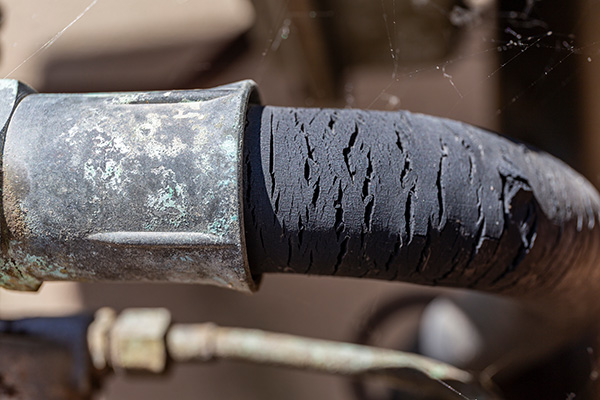
Your engine relies on a complex network of hoses to circulate fluids that keep it running. These hoses are built to last, but over time, wear and tear can lead to cracking. Though they might seem like a small issue, cracked hoses are among the sneaky culprits that can cause major engine problems if not addressed. These silent saboteurs are often overlooked until they start causing issues under the hood. We'll explain how cracked hoses affect your engine and why regular inspection and maintenance are crucial.
What Causes Hoses to Crack
Hoses are designed to withstand extreme conditions, but they’re not invincible. The materials used to make these hoses, typically rubber or plastic, can degrade over time due to exposure to heat, moisture, and chemicals. The intense heat generated by the engine, coupled with the constant pressure from fluid circulation, causes the hoses to expand and contract. This stress can lead to cracks, especially if the hoses are already aged or if the vehicle is subjected to harsh driving conditions. As hoses age, they lose their flexibility, making them more prone to damage.
One of the most common reasons hoses crack is due to the simple fact that they’re exposed to continuous friction and wear. In some cases, exposure to the sun’s UV rays or harsh chemicals like engine cleaners can further speed up the degradation process.
How Do Cracked Hoses Affect Engine Performance
You might think a cracked hose is a minor issue, but even small cracks can have a big impact on your engine’s performance. Hoses transport essential fluids, such as coolant, air, and fuel. When a hose cracks, the fluid it carries can leak out or lose pressure, leading to an assortment of engine troubles.
For example, a cracked radiator hose can cause coolant to leak, leading to engine overheating. The engine can get too hot without enough coolant, potentially resulting in severe damage. Similarly, cracks in fuel or air hoses can lead to improper air-fuel mixtures, affecting engine efficiency and causing poor fuel economy, stalling, or even rough idling. The result? An engine that struggles to perform at its best.
The Dangers of Ignoring Cracked Hoses
Cracked hoses might seem like a minor inconvenience, but if left unchecked, they can cause some serious damage. Ignoring cracked hoses can lead to a chain reaction of engine malfunctions. Overheating from coolant leaks is one of the most immediate risks. The engine relies on coolant to regulate temperature, and without it, you could be facing a complete engine failure.
Similarly, cracked fuel or air hoses can introduce contaminants into the engine, potentially damaging sensitive components like the fuel injectors or air intake system. If a vacuum hose cracks, the engine could experience poor acceleration, hesitation, or stalling due to incorrect air pressure. These issues can not only reduce the efficiency of your car but could also leave you stranded on the side of the road.
Signs of Cracked Hoses
You don’t always have to open the hood to know your hoses might be cracked. There are several telltale signs you can watch for that indicate something’s wrong. If you notice any of the following, it’s time to get those hoses inspected:
- Overheating Engine: If your engine temperature spikes or you notice coolant pooling under your car, it could be a sign that the radiator or coolant hoses are cracked and leaking.
- Check Engine Light: A cracked hose can trigger your car’s check engine light, especially if it’s related to the air intake or vacuum hoses.
- Engine Stalling or Poor Acceleration: Cracked air or fuel hoses can cause engine stalling or hesitation when accelerating.
- Visible Leaks: If you spot puddles of fluid underneath your vehicle, it’s a clear indicator that a hose has cracked or is leaking.
- Strange Engine Sounds: If you hear unusual noises, such as hissing sounds coming from under the hood, it could be due to a cracked hose allowing air to escape.
How to Prevent Hose Cracks
Prevention is always better than repair, and with regular maintenance, you can avoid the problems caused by cracked hoses. One of the most effective ways to prevent hose issues is to have your hoses checked during routine service visits. A simple inspection can identify any hoses that are starting to show signs of wear and tear before they fail completely.
You can also reduce the risk of hose damage by keeping your engine clean and ensuring that coolant and other fluids are properly maintained. If you live in an area with extreme weather conditions, be extra vigilant about checking the hoses, as temperature fluctuations can cause additional stress. Regularly checking for leaks or signs of wear can help you catch problems early and prevent more costly repairs later on.
Worried about the condition of your engine hoses? Let 5 Star Auto Service take a look! We specialize in hose repairs and replacements to keep your engine in top shape. Visit us today for an inspection and keep your car running smoothly.